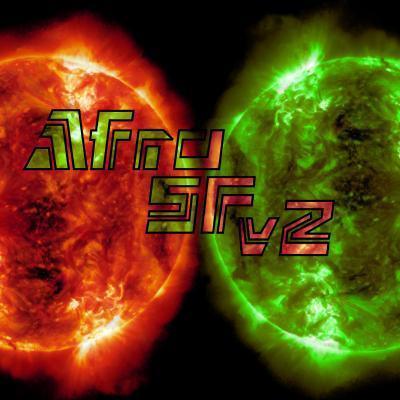 AfroSF, which was released in December 2012, was said to be the first ever SF anthology by African writers, and with the upcoming release of v2, I was curious as to why the focus on novellas this time around. Thankfully, Ivor Hartmann was kind enough to share the reason behind this:
AfroSF, which was released in December 2012, was said to be the first ever SF anthology by African writers, and with the upcoming release of v2, I was curious as to why the focus on novellas this time around. Thankfully, Ivor Hartmann was kind enough to share the reason behind this:'I chose to publish an SF novella anthology for quite a few reasons, but mainly: I like the length a novella gives to really get into a story, novellas are the longest story form a print anthology can feasibly comprise, and I wanted to challenge both myself and the writers to see if we could publish the first novellas anthology of science fiction by African writers.'Hartmann also explains when the 'long road to AfroSFv2' began:
' ... in March 2013 with a year-long open subs call. I had ten entries in total in March 2014 and after reading through them selected eight for first round edits, of those five made it through to second round and ultimately into the anthology.'Well, it's almost here and I am super excited and cannot wait to tuck in to some 'seriously kick-ass SF'. So what are these five novellas about:
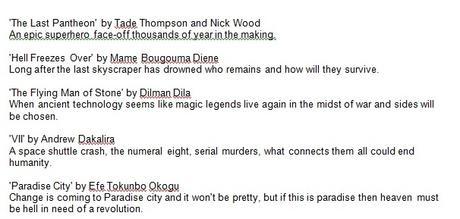
The stories do sound awesome and I am really looking forward to its release. Having said that it would be remiss of me to not point out something I noticed. AfroSF had a number of female writers - Nnedi Okorafor, Sarah Lotz, Cristy Zinn, S.A. Partridge, Chinelo Onwualu, Sally-Ann Murray, Joan De La Haye, Mia Ardern and Rafeeat Aliyu - but as Hartmann rightly addresses:
' .. it will be noticed, and has been already that the anthology is comprised of only male authors, and while it's no excuse, despite my best intentions and strivings otherwise, this is just how it worked out. I think StoryTime's publishing record more than shows I truly have no bias in this regard'.As Hartmann goes on to explain on the AfroSF facebook page, of the eight submissions that were preliminarily accepted, only one was from a woman and after the first edit he saw that it just wan't going to fit into the anthology - as it was primarily YA and the others were less so.
I won't lie, it would have been awesome to see a female author or two being part of this collection, but at the same time Ivor Hartmann's past anthologies (including African Roar) show no evidence of male bias in his work. The 'male dominance' of this anthology did lead to quite an interesting conversation on AfroSF's facebook page around the need to question female writers presence in this genre specifically, and as writer and editor, Chinelo Onwualu, explains more broadly 'the lack of women's representation ... across the literary spectrum on the continent'. With Onwualu going on to write that the 'the question is a legitimate one to ask'. And I agree! Onwualu also offers an answer, from her experience, around female representation in SF:
'For me it's not enough to say that women don't submit without looking at the why. For every issue of Omenana that has come out, I've had to badger, to wheedle - heck I've commissioned pieces from women whom I know are talented as fuck but who still hesistate to put their work out there because they just don't have that confidence or the time necessary to hone their craft. And I am willing to hold back an edition until I have a woman's voice in it ... I know the problem shouldn't be placed solely at the door of editors, but let's not pretend that they have no role to play in upholding the status quo.'Not taking away from what the anthology will hopefully do for the field of African SF, it does bring up important discussions on female SF writers - such as, are women invisible in SF? Are women submitting less to SF than other genres? And if so, why? - and these should not be discounted, dismissed or ignored. Still, I eagerly await the December release of AfroSFv2. PS. While you wait for the anthology, here are some works from the authors of the novellas. Tade Thompson's debut novel Making Wolf is out now. It's a 'gritty thriller set in modern-day Nigeria' about a police officer in a supermarket in London who returns to his home for his aunt's funeral, but kidnapped by rebel factions to investigate the murder of a local hero after telling people he works as a homicide detective. Nick Wood has published The Stone Chameleon, a YA sf/fantasy novel, as well as a number of short stories. His next book, Azanian Bridges, will be published in 2016. Wood describes it as being set in a contemporary alternative South Africa where Nelson Mandela and other struggle leaders were never released, i.e. apartheid survives.Dilman Dila's short story collection of speculative fiction, A Killing in the Sun, was shortlisted for the 2013 Commonwealth Short Story Prize.
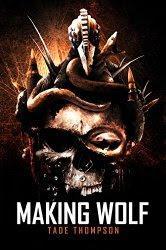
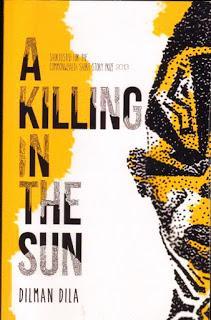
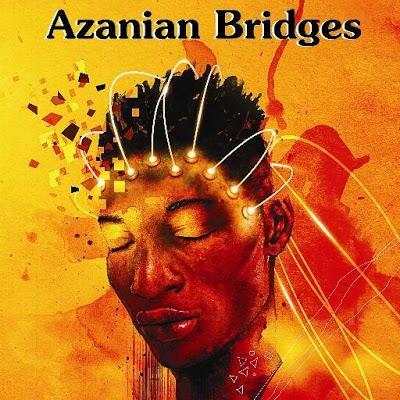
Art work for Azanian Bridges via Nick Wood's Twitter Page
Mame Bougouma Diene's short stories can be found on Brittle Paper (The Girl with the Mami Wata Tattoo) and Omenana (The Horse of War and The Broken Nose). Also check out Andrew Dakalira's stories on Brittle Paper (A Flicker of Memory), Africa Book Club (Funeral Woes) and AfricanWriter.com (My Grandmother). EfeTokunbo Okogu's stories can be found in a number of literary journals and anthologies, and his shot story, 'Proposition 23' from AfroSF was nominated for the 2013 BSFA awards.
